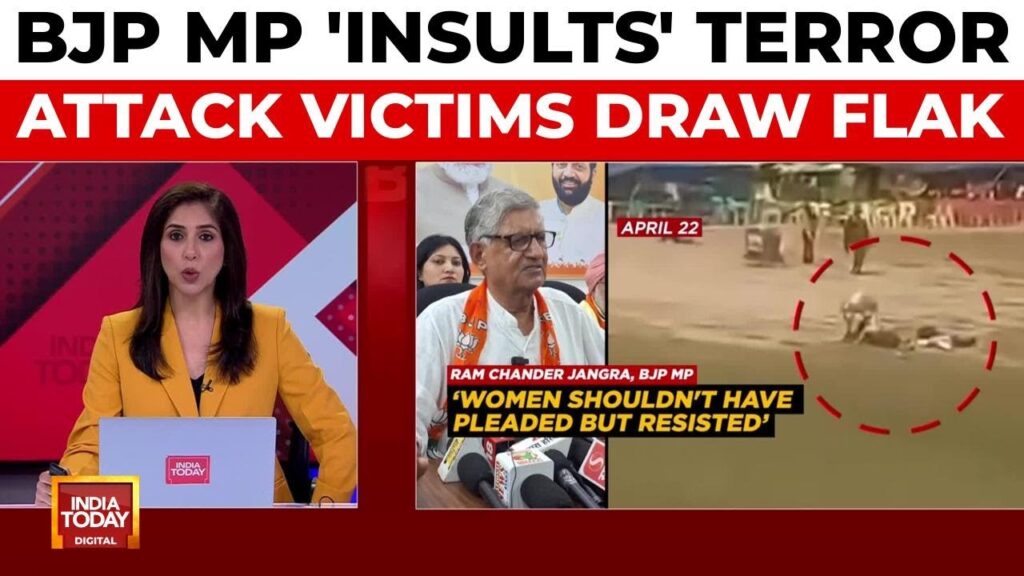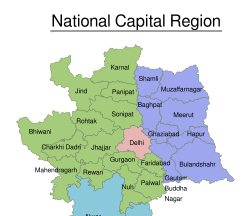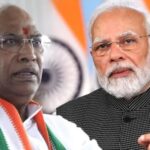The statements by a BJP Rajya Sabha MP regarding the victims of a terror attack in Jammu and Kashmir’s Pahalgam district have sparked widespread outrage and raised serious questions about the sensitivities of elected representatives. Ram Chander Jangra, a member of the upper house of Parliament, suggested that the women who lost their husbands in the brutal assault lacked the “heroic qualities, enthusiasm and zeal” necessary to withstand such violence. His remarks came shortly after another BJP leader, Vijay Shah from Madhya Pradesh, faced criticism for derogatory comments about an Army officer, forcing him to issue a public apology.
The Pahalgam attack, which claimed the lives of several civilians including tourists, was one of the deadliest assaults targeting visitors in Kashmir, a region frequently caught in the crossfire of insurgency and counterterrorism operations. Security forces have remained vigilant to prevent such incidents, but the human cost has been significant. The grief and trauma faced by the families of the deceased have drawn national sympathy and calls for stronger security measures. However, Jangra’s comments have shifted the narrative into controversial territory, sparking a fierce backlash from political opponents, civil society, and members of the public.
Jangra publicly stated that if the victims had undergone the “Agniveer” training, a recruitment scheme designed to induct youth into the armed forces with enhanced combat skills, they might have been able to defend themselves successfully. This implication that the victims could have altered the outcome by being better prepared militarily has been widely condemned as insensitive and inappropriate. Critics argue that the responsibility for such attacks lies solely with the perpetrators and the systemic failure to ensure civilian safety, not with those who suffered from the violence.
The Agniveer scheme, introduced by the Indian government, aims to bolster the armed forces with young recruits trained intensively in combat and defence tactics. It is intended as a step towards modernising military recruitment and expanding the pool of trained personnel. While the scheme has its proponents, linking civilian victims of terror attacks to a lack of such training is viewed by many as a misjudgment of the realities faced by ordinary citizens, especially tourists who are typically non-combatants with no obligation or means to defend themselves against armed militants.
Political analysts have pointed out that remarks like Jangra’s risk deepening the divide between citizens and elected officials by appearing to shift blame onto victims rather than addressing broader security challenges. Kashmir’s complex situation demands a nuanced and empathetic approach, particularly from leaders whose statements carry significant weight across diverse communities. The timing of Jangra’s remarks, following his party colleague’s recent controversy over derogatory comments about a decorated Army colonel, has intensified scrutiny of the party’s public discourse on sensitive issues.
Responses from opposition parties were swift and sharp. Many accused the BJP of displaying a lack of compassion and called for stronger accountability measures to prevent such statements. Human rights groups condemned the comments as part of a troubling trend where victims of violence are unfairly criticised or blamed for their misfortune. Social media platforms also saw widespread condemnation, with users highlighting the need for political leaders to demonstrate empathy and respect for those who suffer in conflict zones.
Officials in Jammu and Kashmir have maintained a focus on strengthening security infrastructure and improving intelligence capabilities to prevent further attacks. Local authorities continue to emphasise the importance of safeguarding tourism, which is a vital economic sector for the region, while balancing the persistent threat posed by militant groups. The Pahalgam attack remains a stark reminder of the ongoing risks faced by civilians in conflict-prone areas and the challenges for security forces operating in such environments.
Experts in conflict resolution and security studies argue that victim-blaming narratives undermine efforts to build trust between communities and the state. Such perspectives detract from addressing root causes of violence and hinder the development of comprehensive strategies that include social, economic, and political dimensions. They stress the importance of political leaders fostering unity and offering support to affected families rather than engaging in rhetoric that may alienate or demoralise those already traumatised.




 Kharge Accuses Modi Govt of ‘Undeclared Emergency’
Kharge Accuses Modi Govt of ‘Undeclared Emergency’ 